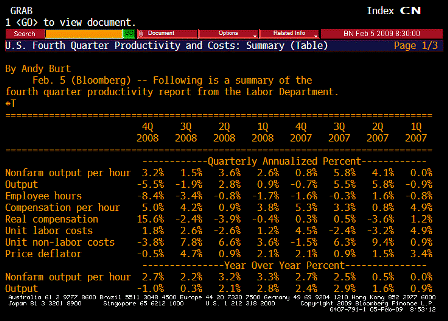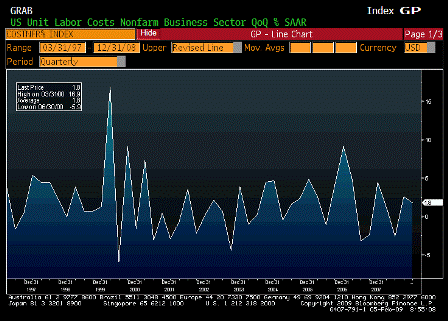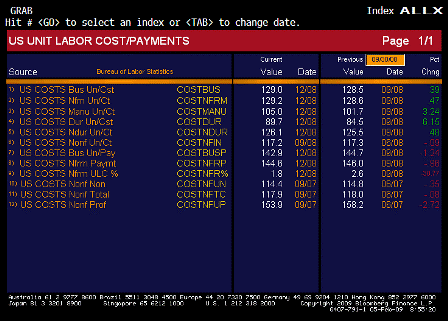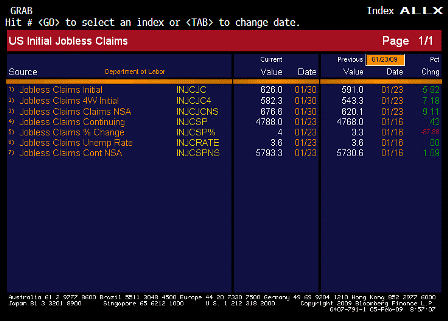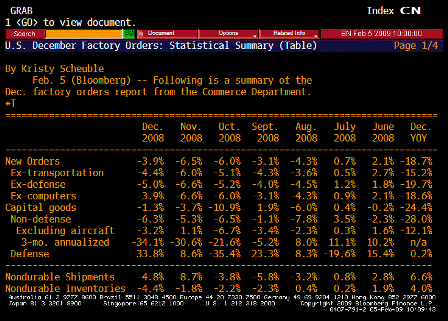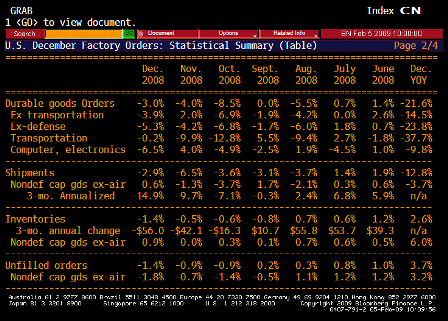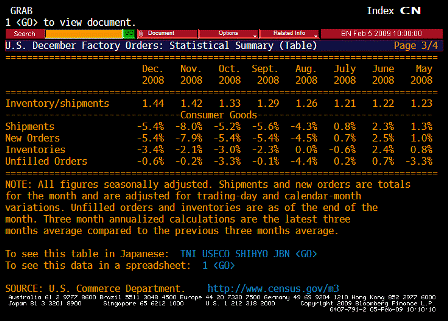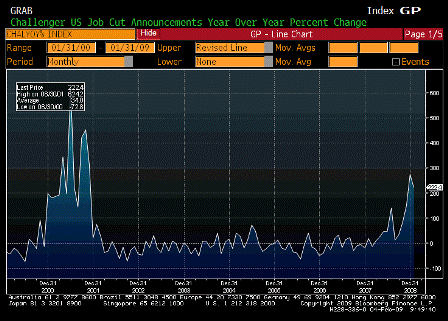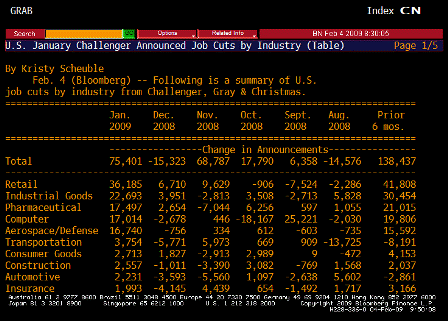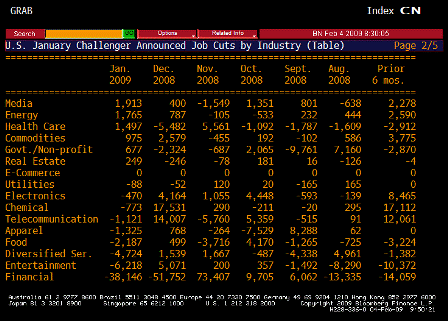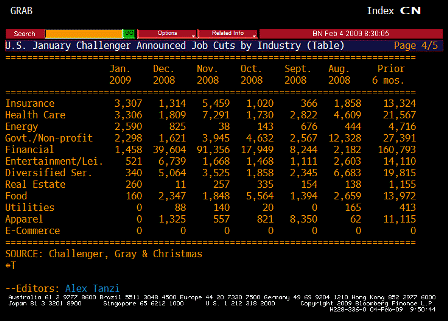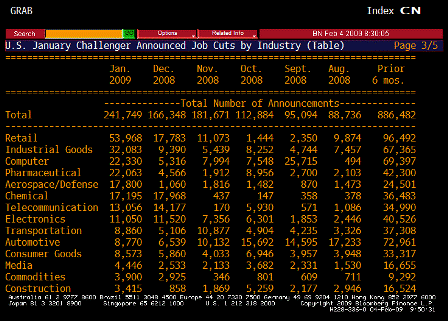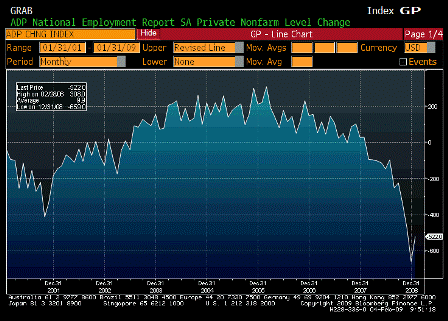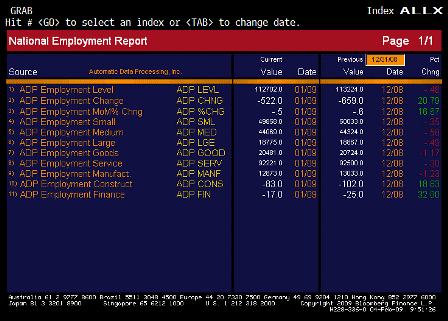- Change in Nonfarm Payrolls (Released 8:30 EST)
- Change in Nonfarm Payrolls YoY (Released 8:30 EST)
- Nonfarm Payrolls ALLX (Released 8:30 EST)
- Unemployment Rate (Released 8:30 EST)
- Unemployment Rate ALLX 1 (Released 8:30 EST)
- Unemployment Rate ALLX 2 (Released 8:30 EST)
- Change in Manufacturing Payrolls (Released 8:30 EST)
- Change in Manufacturing Payrolls YoY (Released 8:30 EST)
- Average Hourly Earnings MoM (Released 8:30 EST)
- Average Hourly Earnings YoY (Released 8:30 EST)
- Average Hourly Earnings ALLX 1 (Released 8:30 EST)
- Average Hourly Earnings ALLX 2 (Released 8:30 EST)
- Average Hourly Earnings ALLX 3 (Released 8:30 EST)
- Average Weekly Hours (Released 8:30 EST)
Karim writes:
Job losses picking up speed and hours worked continue to plunge.
- -598k job losses in January
- Benchmark revision for 2008, -400k
- Unemployment rate up from 7.2% to 7.6%
- Hours worked down another 0.7% (biggest driver of personal income)
- Augmented unemployment rate rises from 13.5% to 13.9% (was 8.7% in December 2007)
- Diffusion index down to 25.3 from 25.5 (only 2 sectors to add jobs were education, 54k, and government, 6k)

Change in Nonfarm Payrolls (Jan)
| Survey | -540K |
| Actual | -598K |
| Prior | -524K |
| Revised | -577K |

Change in Nonfarm Payrolls YoY (Jan)
| Survey | n/a |
| Actual | -3500.00 |
| Prior | -2589.00 |
| Revised | n/a |

Nonfarm Payrolls ALLX (Jan)
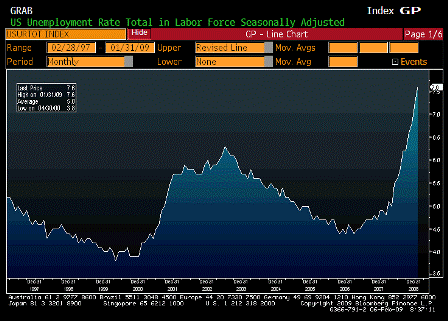
Unemployment Rate (Jan)
| Survey | 7.5% |
| Actual | 7.6% |
| Prior | 7.2% |
| Revised | n/a |
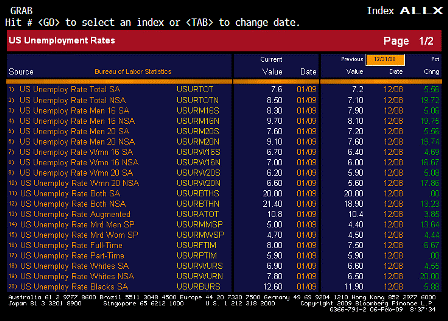
Unemployment Rate ALLX 1 (Jan)
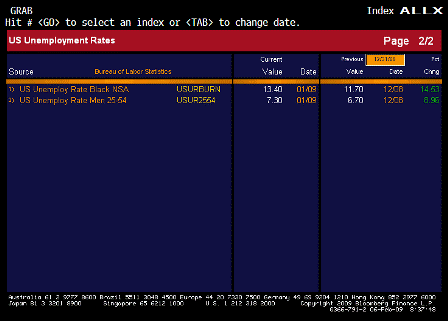
Unemployment Rate ALLX 2 (Jan)
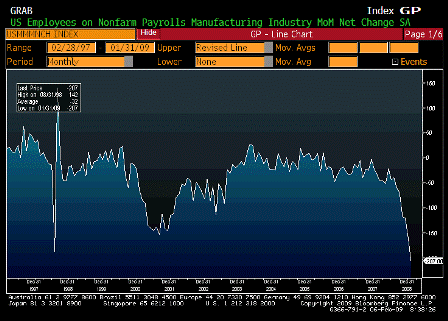
Change in Manufacturing Payrolls (Jan)
| Survey | -145K |
| Actual | -207K |
| Prior | -149K |
| Revised | -162K |
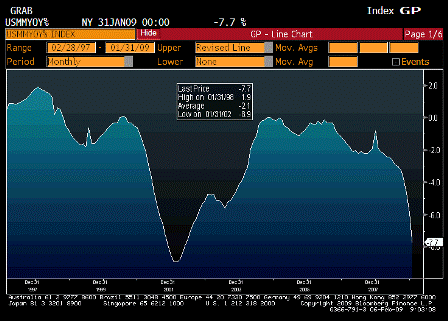
Change in Manufacturing Payrolls YoY (Jan)
| Survey | n/a |
| Actual | -7.7% |
| Prior | -5.9% |
| Revised | n/a |
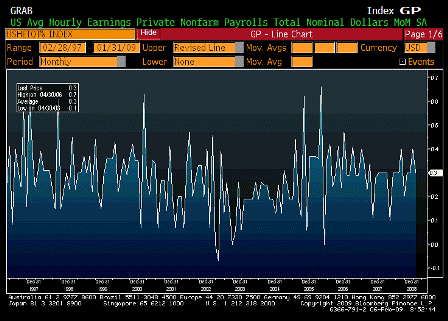
Average Hourly Earnings MoM (Jan)
| Survey | 0.2% |
| Actual | 0.3% |
| Prior | 0.3% |
| Revised | 0.4% |

Average Hourly Earnings YoY (Jan)
| Survey | 3.6% |
| Actual | 3.9% |
| Prior | 3.7% |
| Revised | 4.0% |

Average Hourly Earnings ALLX 1 (Jan)

Average Hourly Earnings ALLX 2 (Jan)

Average Hourly Earnings ALLX 3 (Jan)
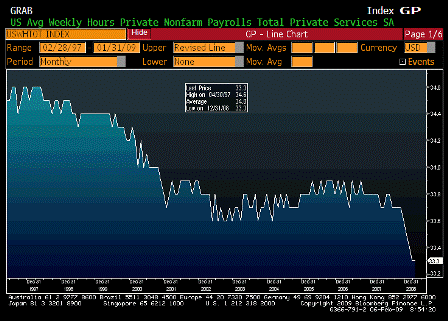
Average Weekly Hours (Jan)
| Survey | 33.3 |
| Actual | 33.3 |
| Prior | 33.3 |
| Revised | n/a |
[top]




